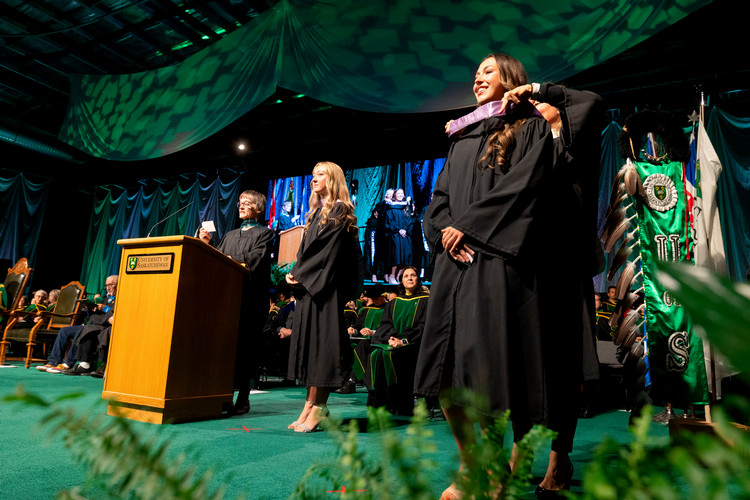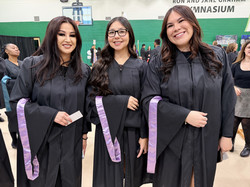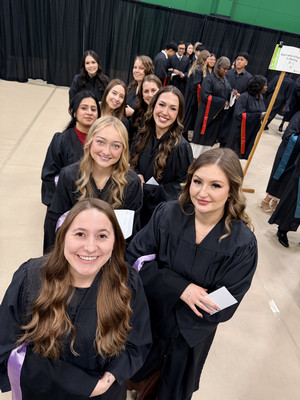
USask College of Dentistry Celebrates Milestone Moment at Fall Convocation
This week, the University of Saskatchewan (USask) marked Fall Convocation at Merlis Belsher Place, an event that continues to grow in meaning and participation for the College of Dentistry.
By Duane KripHistorically, the college had limited involvement in Fall Convocation, as its academic programs traditionally concluded in the spring. That changed with the launch of the Bachelor of Science in Dental Therapy (BScDT) program in 2023. Operating over six terms across two years and concluding each summer, the program created a new pathway for students to celebrate their academic achievements in the fall.
This year, the college proudly celebrated a significant milestone: 26 students crossed the stage to receive their Bachelor of Science in Dental Therapy degrees, marking the first cohort to complete the full two-year program.
“These students have demonstrated commitment, resilience, and a strong desire to serve their communities,” said Dean Dr. Walter Siqueira. “We are incredibly proud of their accomplishments and excited to see the impact they will make across Saskatchewan and beyond.”
A defining feature of the program is its dual-entry design, which opens doors for learners from diverse educational and professional backgrounds. High school graduates may enter directly into year one, while certified dental hygienists can begin their studies in the second year, building on their existing clinical expertise to earn the BScDT degree in just one year. Of this year's graduates, 20 completed the full two-year pathway, while six entered directly into year two as practicing dental hygienists.
Training locations across the province reflect the program’s commitment to improving access to oral health education, and ultimately care, across Saskatchewan. Twenty members of this graduating class completed their studies at off-campus learning sites in La Ronge, Prince Albert, and Regina, an intentional effort to support rural communities where access to dental services is most limited.

For students, the program has provided a chance to expand their skills while preparing to make a meaningful difference close to home.
Lexi Martin, from Fort Qu’Appelle, entered the program after working as a dental assistant. “I wanted to broaden my skill set so I could serve in a rural community where access to dental care can be more difficult,” she said. “Being able to help in that way is incredibly rewarding.”
Kyla Parenteau-Vandale, who also began her career as a dental assistant, said the hands-on nature of the curriculum is what sets the program apart. “This path allows me to do more for my patients,” she said. “The amount of hands-on learning and real patient experience we get is the biggest strength of the program.”
For Eryka Murray of Prince Albert, the journey into dental therapy began from a different direction. After working as a licensed practical nurse (LPN), she felt drawn back to her long-held interest in dentistry. “I always loved going to the dentist as a child, and I enjoy working with my hands,” she said. “Dental therapy was the perfect way to combine those interests.” Completing her two years of study at the Prince Albert campus, she emphasized the supportive learning environment: “The small class size makes a huge difference. You feel encouraged every step of the way.”

Launched in fall 2023, the BSc in Dental Therapy program is Canada’s only accredited dental therapy degree. It aims to address the country’s urgent need for dental therapists, particularly in rural and Indigenous communities that have long faced gaps in oral health care.
“These new grads will fill positions that have been vacant for years across Saskatchewan and Canada, delivering much-needed care in rural and remote communities,” said Gerry Uswak, Director of the USask Bachelor of Science in Dental Therapy program.
As these 26 graduates begin the next chapter of their careers, the College of Dentistry celebrates not only their achievements but also the growing impact of a program designed to strengthen oral health care where it is needed most.

